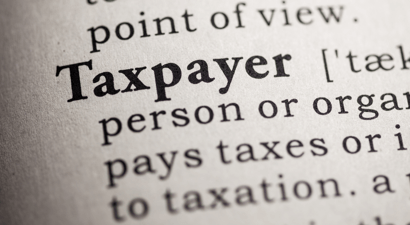Voluntary Disclosure Programme: Understatement penalty requirement
In the event of an 'understatement' by a taxpayer, the taxpayer must pay, in addition to the tax payable for the relevant period, the understatement penalty, unless the 'understatement' results from a bona fide inadvertent error.
An 'understatement' is where SARS or the fiscus has suffered a prejudice as a result of:
a) A default in rendering a return;
b) An omission from a return;
c) An incorrect statement in a return;
d) If no return is required, the failure to pay the correct amount of tax; or
e) An impermissible avoidance arrangement.
The understatement penalty is the amount resulting from applying the highest applicable understatement penalty percentage in accordance with the table hereunder:
A person, whether in a personal, representative, withholding or other capacity, may apply for voluntary disclosure relief.
A voluntary disclosure involves a 'default', which means the submission of inaccurate or incomplete information to SARS, or the failure to submit information or the adoption of a 'tax position', where such submission, non-submission, or adoption resulted in an understatement.
The requirements for a valid voluntary disclosure are the following:
a) The disclosure must be voluntary.
b) It must involve a 'default' which has not occurred within five years of the disclosure of a similar 'default'. Previously this requirement was that the disclosure must involve a 'default' which has not previously been disclosed by the applicant. According to the Explanatory Memorandum the scope of the voluntary disclosure regime has been widened.
c) This disclosure must be full and complete in all material respects.
d) The disclosure must involve a behaviour provided for in the understatement penalty percentage table. This is a strange requirement, because a bona fide inadvertent error, that does not trigger an understatement penalty, does not qualify for voluntary disclosure relief. Where a 'default' at least does not constitute a 'substantial understatement' or where the other behaviours contemplated in the above table are also not present, it will not qualify for voluntary disclosure relief. The Explanatory Memorandum suggests that SARS may take a contrary view regarding the assessment of the relevant behaviour.
e) The disclosure should not result in a refund due by SARS.
f) The disclosure must be made in the prescribed from and manner.
The VDP relief is the following:
- SARS cannot pursue criminal prosecution for a tax offence arising from the 'default'.
- The understatement penalty is limited to column 5 and 6 of the above percentage table.
- 100% relief in respect of an administrative non-compliance penalty imposed under Tax Administration Act 28 of 2011 or another tax Act for the late payment of a tax, excluding a penalty imposed for the late submission of a return.





